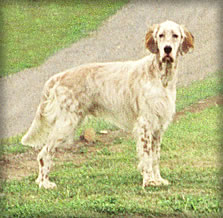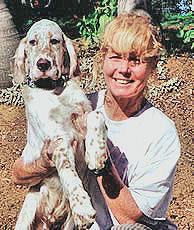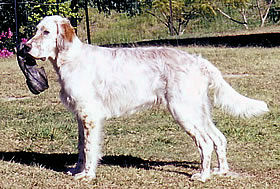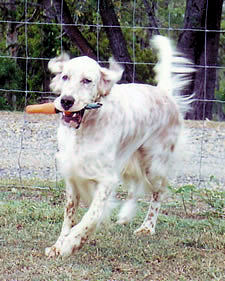STOLEN DOGS

Since 1 July 2003 I have received thousands of emails and phone calls and have been overwhelmed by the number of people who have told me their dog was stolen and has never been seen again.
I believe dog stealing is a major problem in Australia even though humans tend to think, or more appropriately want to think it is a rare occurrence.
In Australia there is apathy right 'across the board' towards dog stealing even though stealing a dog is a criminal offence and the convicted offender is liable to imprisonment for one year (refer The Legal Status of a Dog web page).
Crime reports are rarely completed by the Police when a dog is stolen because most dog owners do not go to the Police.
No statistics are collected on stolen dogs even though stealing a dog is a crime.
Council dog pounds, RSPCA animal shelters and veterinary practices do not maintain accurate and reliable Lost and Found records. Stolen dogs are categorised as lost dogs. Police crime report numbers are not recorded.
 There is a huge incidence in Australia of humans dishonestly keeping lost dogs they find for their own selfish reasons without making any attempt to locate the legal owner of the dog. These humans are guilty of stealing a dog which is a criminal offence.
There is a huge incidence in Australia of humans dishonestly keeping lost dogs they find for their own selfish reasons without making any attempt to locate the legal owner of the dog. These humans are guilty of stealing a dog which is a criminal offence.
There is no data collected to determine whether or not the stealing of dogs is a serious problem in Australia even though dogs are stolen for illegal dog breeding, illegal dog trading, illegal dog fighting and by dishonest humans who want a dog without having to pay for the dog.
Veterinary practices are not determining legal ownership prior to treating dogs even though this behaviour contradicts existing criminal law and property law.
The only time a stolen dog is scanned for a microchip to determine legal ownership is when the dog gets away from the criminals who stole him, ends up as a stray dog and is then taken to a council dog pound, RSPCA animal shelter or veterinary practice. Then it depends on how thoroughly the dog is scanned for a microchip. Microchips can move. Veterinarians are not obliged by law to assist in these situations.
Council dog pounds, the RSPCA and private dog rescue organisations cannot legally sell, re-home or kill any stolen dog but this still happens.
A veterinarian cannot legally kill any stolen dog but this still happens.
Then there is the general attitude that dogs are not intelligent or aware and do not suffer grief. Those humans with this mindset e.g. those who talk about anthropomorphism do not see anything wrong with stealing a dog even though it is a criminal offence.
The "normal" attitude is the stolen dog will never be seen again, so why bother .. go out and buy yourself another dog .. and 'move on'.
 These are some opinions on an internet purebred dog forum from dog owners, who consider themselves dog lovers, about a lost dog who was later found:
These are some opinions on an internet purebred dog forum from dog owners, who consider themselves dog lovers, about a lost dog who was later found:
1. "I ask myself how much a good home can you provide for her, if she ran away ? Maybe she doesn't have a reason to stay ?"
2. "It makes me so mad that people don't look after their dogs properly and that people like us have to stop and get so emotionally involved for senseless people who don't take care of their pets. Wake up to yourselves and realise that if you can't look after your pet then you don't deserve to keep it. WHOEVER FINDS THE DOG SHOULD BE ABLE TO KEEP IT".
The 2 people who expressed these opinions knew nothing about the circumstances of how the dog became lost; the home environment of the lost dog; nor anything about the legal owners of the dog. They did not stop to consider for one moment that the dog may have been stolen from her home.
This is a photo of Beau when he was a puppy chewing one of his mum's shoes. Beau was always a very happy, fun loving boy and he had a zest for life. He was oblivious to any type of danger because he was loved so much by his mum and his family.
Little did Beau know the trauma and danger that awaited him that terrible day on 1 July 2003. Neither did his mum because she took extraordinary lengths to protect him, as well as his family.
Unless this happens to you and your dog, you could not begin to imagine the trauma and the grief suffered by everyone involved, including the dog.
Beau's love for his family did not stop because he was stolen from us.
 When your dog dies, this is also extremely difficult to cope with. However, you know what happened to your dog, where your dog is and that your dog is safe and cannot be harmed.
When your dog dies, this is also extremely difficult to cope with. However, you know what happened to your dog, where your dog is and that your dog is safe and cannot be harmed.
When your dog is stolen from you, and this applies to the situation when a dog ends up outside his or her property and is found and deliberately kept by another human, you do not know what has happened to your dog, where your dog is, who your dog is with, how your dog is being treated, and you know your dog will be fretting badly.
A dog lives in the moment, but this does not mean a dog does not suffer stress, trauma and grief.
A dog will never forget a human he loves.
Please take a moment to think about this .. when Beau came to live with me as a 4 months old puppy, he knew instantly that he was very deeply loved and respected and he knew he was safe. He was fed a high quality natural diet and provided with appropriate exercise and a routine he loved. He was given the opportunity to use his natural instincts. He was very well socialised. He was bathed, brushed and groomed regularly. He was an indoor dog and had free run of the house and was allowed to sleep on the bed. He was never left alone. He was loved unconditionally.
Beau grew into a strong, athletic, healthy, happy dog and he knew how much he was loved by me.
Can you imagine the depth of the trauma, fear and confusion Beau suffered the day he was stolen, and Beau would have suffered these terrible feelings for a very long time.
Beau would have been held captive because he would have tried to escape otherwise. He would have barked constantly, crying out for his mum. Why didn't his mum come and get him and take him back to his home? What had he done wrong?
"Apathy is the glove into which evil slips its hand. " ~ Bodie Thoene.
"All that is necessary for the triumph of evil is that good men do nothing." ~ Edmund Burke (1729-1797).


 There is a huge incidence in Australia of humans dishonestly keeping lost dogs they find for their own selfish reasons without making any attempt to locate the legal owner of the dog. These humans are guilty of stealing a dog which is a criminal offence.
There is a huge incidence in Australia of humans dishonestly keeping lost dogs they find for their own selfish reasons without making any attempt to locate the legal owner of the dog. These humans are guilty of stealing a dog which is a criminal offence.  These are some opinions on an internet purebred dog forum from dog owners, who consider themselves dog lovers, about a lost dog who was later found:
These are some opinions on an internet purebred dog forum from dog owners, who consider themselves dog lovers, about a lost dog who was later found: When your dog dies, this is also extremely difficult to cope with. However, you know what happened to your dog, where your dog is and that your dog is safe and cannot be harmed.
When your dog dies, this is also extremely difficult to cope with. However, you know what happened to your dog, where your dog is and that your dog is safe and cannot be harmed.